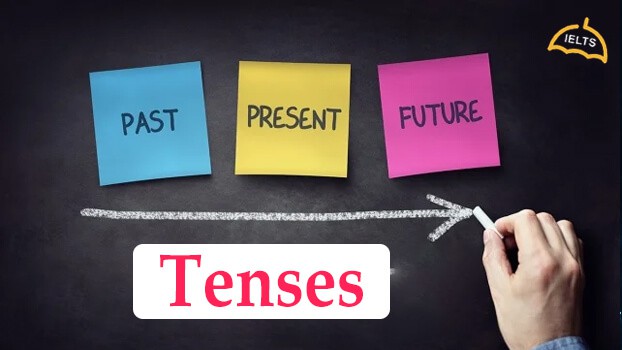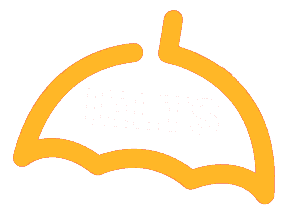IELTS Grammar Tenses
Another important component of scoring high in IELTS is the ability to demonstrate a large variety of tense and aspect in IELTS Writing and Speaking.
If one can show equal comfort in using different sentences in all present, past and future tenses along with the aspects with time like simple, continuous, perfect and perfect continuous varieties, the band score using goes higher. Let us look into IELTS Grammar Tenses in detail.
Tense refers to time, i.e., the time an action or event has occurred. Every main verb in a sentence has a particular tense. There are three tenses in English:

1 Present tense
2.Past tense
3 Future tense
For example,
I write a work report every day. (Present tense)
I wrote a work yesterday. (Past tense)
I will write a work report tomorrow. (Future tense)
In English, as the tense or time is concerned with the action, the verb changes its form depending on the tense of the sentence. To rephrase, the form of the verb exhibits the tense of a sentence.
1. Present Tense- IELTS Grammar Tenses
Present tense is further divided into four types:
I. Simple Present:
When the action occurs regularly. For example,
The sun rises in the East.
The structure of Simple Present sentences are S+V+O.
II. Present Continuous/Progressive:
When the action is continuing at a given moment.
It is raining today.
I am going to school.
The structure of Present Continuous sentences are S+is/am/are+V-ing+O
III. Present Perfect:
When the action has been completed. It shows the perfected/completed action in the present time period.
I have finished my work.
Ram has killed Ravana.
The structure of Present Perfect sentences are S+has/have+V(participle)+O
IV. Present Perfect Continuous:
When the action shows a time frame from past till present.
I have been reading this book.
Rohan has been postponing his trip.
The structure of Perfect Continuous sentences are S+has/have+been+V-ing+O.
2. Past Tense- IELTS Grammar Tenses
Past tense is further divided into four types the same way as the present tense.
I. Simple Past
When the action happened before the present.
I wrote a letter to the authorities.
I watched the movie yesterday.
She knew about the paranormal activities at the house.
The structure of Simple Past sentences are S+V(past)+O.
II. Past Continuous/Progressive:
When the action was continuing at a given moment in the past.
I was writing a letter to the authorities.
I was watching the movie yesterday.
She knew about the paranormal activities at the house.
The structure of Past Continuous sentences are S+was/were+V-ing+O.
III. Past Perfect:
When the action has been completed in the past. It shows the perfected/completed action.
I had written a letter to the authorities.
Ravi had taken the thief to the police.
My colleague had resigned before the pandemic.
The structure of Past Perfect sentences are S+had+V(participle)+O.
IV. Past Perfect Continuous:
When the action shows a long time period in the past.
I had been writing regular letters to the authorities.
The guide had been showing around the fort to the visitors.
The soldiers had been marching for days before reaching the border.
The structure of Past Perfect Continuous sentences are S+had been+V(participle)+O
Note: You cannot add information about time in the present perfect sentences, whereas you can add the information of time in past perfect sentences. For example:
“I have completed my work in the morning” is wrong, whereas
“I had completed my work in the morning” is grammatically correct.
3. Future Tense – IELTS Grammar Tenses
Two subdivisions of future is enough to know for any purpose of English
I. Simple Future:
where the action will take place in the future. For example,
I will write a letter to the authorities.
India will soon emerge as a superpower.
The divisions between the factions will disappear someday.
The structure of Simple Future sentences are S+will/shall+V+O.
II. Future Continuous/Progressive:
where an action will be in progress in the future. For example,
I will be writing a letter to the authorities.
India will be emerging as a superpower soon.
The divisions between the factions will be disappearing someday.
The structure of Future Continuous sentences are S+will/shall+be+V+O.
Summary On IELTS Grammar Tenses
The appropriate use of tenses is not a magic trick that dawns upon us in a single day. So one should practice enough to excel in its usage. Make sure you put in a lot of time practicing tense, the materials of which are available online.
Hope Article on IELTS Grammar Tenses Helpful
Looking for a score above 7 in your IELTS Test? Enrol for our IELTS video course that has helped people to score high in IELTS

